UNITS 1 and 2 AP WORLD
1/121
Earn XP
Description and Tags
Ap wprld vocabulary terms used for units 1 and 2
Name | Mastery | Learn | Test | Matching | Spaced |
|---|
No study sessions yet.
122 Terms
Afro-Eurasian Trade Routes
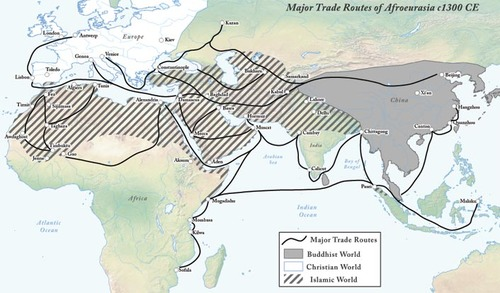
Catholic West Europe
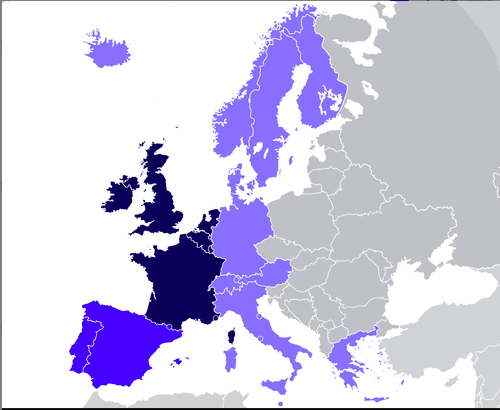
Deccan
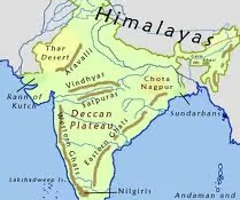
Muslim World
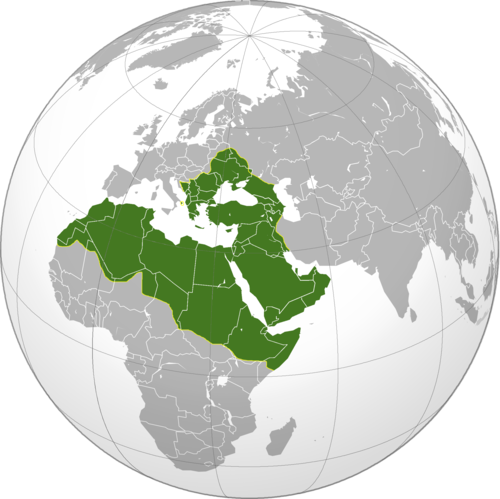
Orthodox Europe
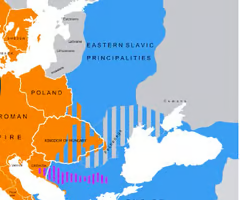
Sudan (West Africa)
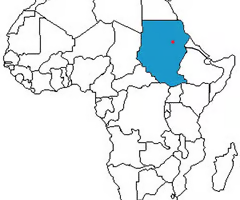
Swahili (East Africa)
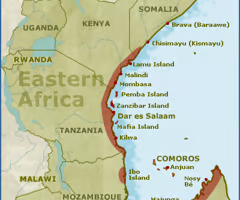
Baltic Sea
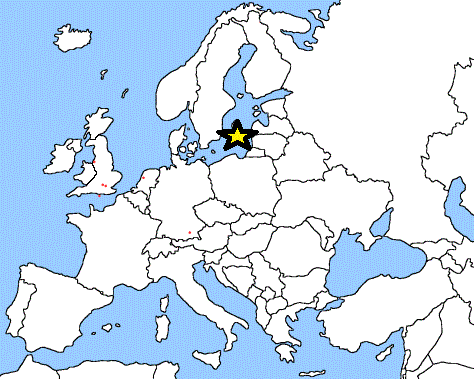
Congo River
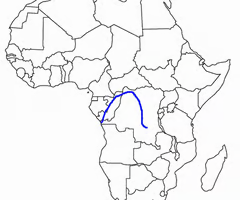
Dnieper River
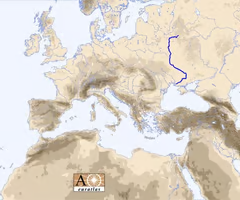
Java Sea
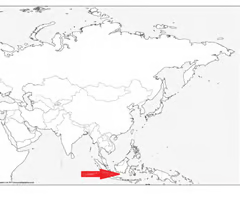
Lake Victoria
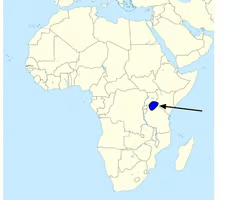
Mekong River
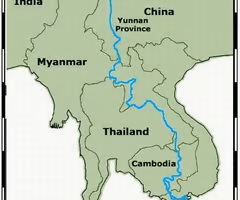
North Sea
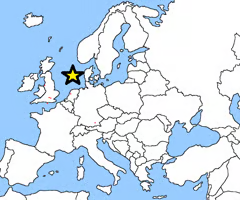
Sea of Japan
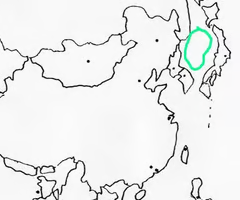
Volga River
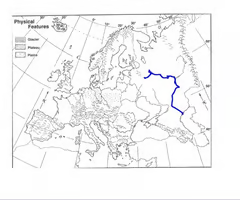
Bosporus, Dardenelles
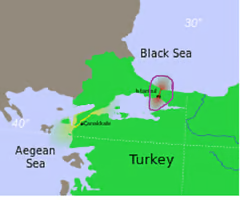
Hawaiian Islands
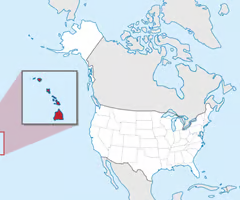
Italian Peninsula
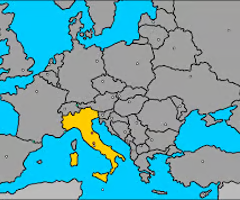
Iberian Peninsula
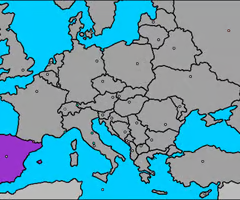
Java
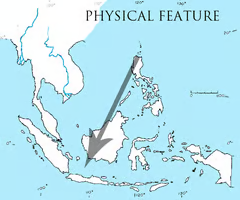
Madagascar
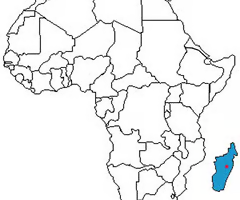
Urals
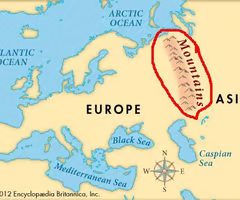
Baghdad
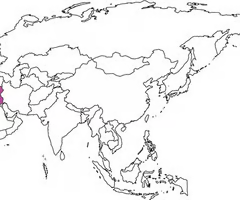
Cahokia
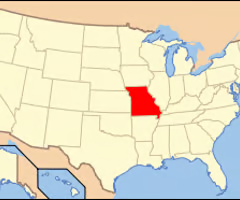
Cairo
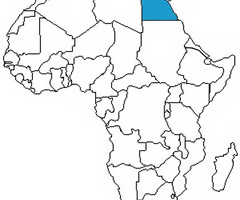
Calicut
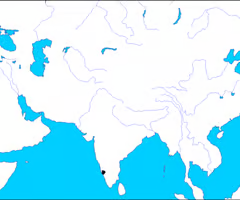
Constantinople
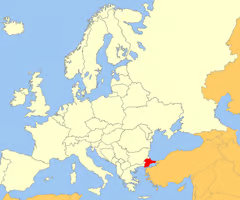
Cordoba
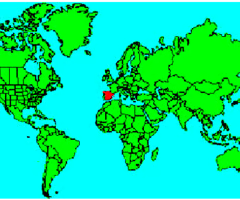
Guangzhou
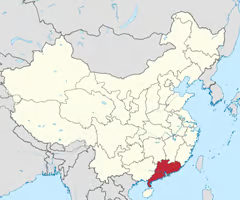
Hangzhou
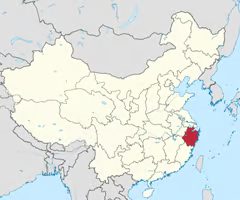
Heian
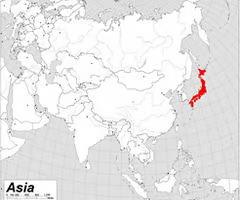
Kilwa
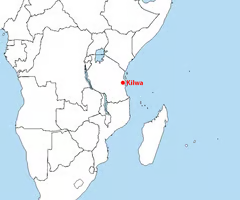
Melaka
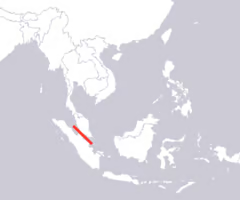
Mogadishu
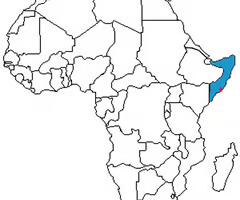
Novgorod
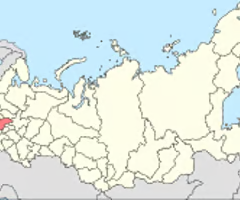
Tenochtitlan
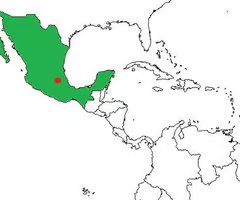
Timbuktu
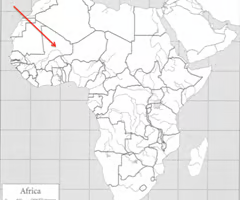
Venice
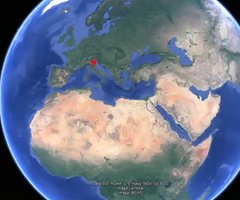
Byzantine Empire
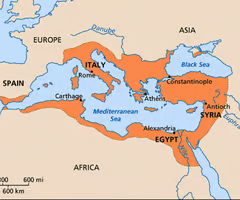
Inca Empire
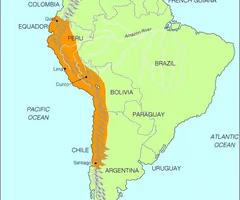
Islamic Caliphates
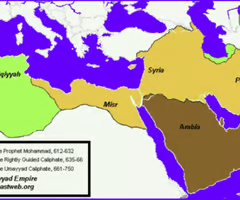
Italian City States
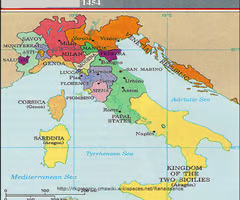
Japan
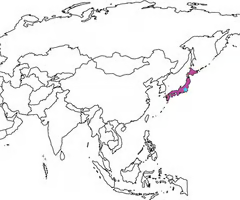
Mongolian Empire
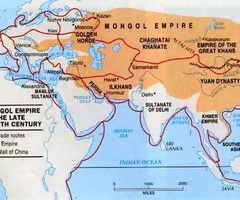
Polynesia map
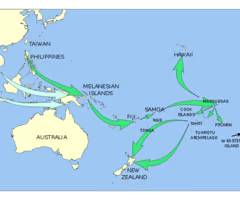
Swahili States
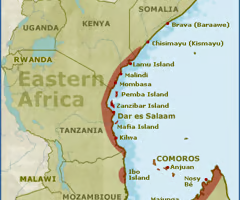
[Sui, Tang, Song]
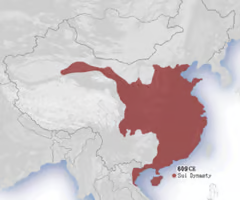
Toltecs
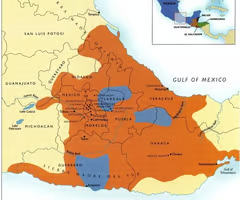
Bedouins
Nomadic Arabs
Bushido
The "way of the warrior," referring to the military virtues of Japanese samurai, including bravery, loyalty, and an emphasis on death over surrender.
Caesaropapism
A political-religious system in which the secular ruler is also head of the religious establishment, as in the Byzantine Empire.
Charlemagne
Ruler of the Carolingian Empire (r. 768-814) who staged an imperial revival in Western Europe.
Crusades
Modern term meaning "ventures of the cross," used to describe the "holy wars" waged by Western Christendom from 1095 until the end of the Middle Ages and beyond; Crusades could only be declared by the pope and were marked by participants swearing a vow and receiving an indulgence in return.
Cyril and Methodius
9th century Byzantine missionaries to the Slavs whose development of Cyrillic script made it possible to write Slavic languages.
Dhimmis
"Protected subjects" under Islamic rule, non-Muslims who were allowed to practice their faith as "people of the
book" in return for their paying special taxes.
"fictive kinship"
Common form of tribal bonding in nomadic societies in which allies are designated and treated as blood relatives.
"friestock farming"
A manipulation of their environment by the Paleolithic peoples of Australia that involved controlled burns to clear underbrush.
foot binding
Chinese practice of tightly wrapping girls' feet to keep them small, begun in the Tang dynasty; an emphasis on small size and delicacy was central to views of female beauty.
Ghana, Mali, Songhy
A series of important states that developed in western and central Sudan in the period 500-1600 C.E. in response to the economic opportunities of trans-Saharan trade (especially control of gold production).
Guild
An association formed by people pursuing the same line of work that regulated their professions; it also provided a social and religious network for members.
hadiths
Traditions passed on about the sayings or actions of Muhammad and his immediate followers; hadiths rank second only to the Quran as a source of Islamic law.
hajj
The pilgrimage to Mecca enjoined on every Muslim who is able to make the journey; one of the Five Pillars of Islam.
hijra
The "flight" of Muhammad and his original seventy followers from Mecca to Yathrib (later Medina) in 622C.E. ; the journey marks the starting point of the Islamic calendar.
Heian
Japan's second capital city (now known as Kyoto), modeled on the Chinese capital of Chang'an; also used to
describe the period of Japanese history from 794 to 1192 C.E.
Iconoclasm
The destruction of holy images; a term most often used to describe the Byzantine state policy of image destruction from 726 to 843.
Ibn Battuta
Fourteenth-century Arab traveler (1304-1368) who wrote about his extensive journeys throughout the Islamic world.
Imans
In Shia Islam, leaders with high religious authority; the twelve imams of early Shia Islam were Muhammad's nephew Ali and his descendants.
Indulgence
A remission of the penalty (penance) for confessed sin that could be granted only by a pope, at first to Crusaders and later for a variety of reasons.
Indian Ocean trading network
The world's largest sea-based system of communication and exchange before 1500 C.E., Indian Ocean commerce stretched from southern China to eastern Africa and included not only the exchange of luxury and bulk goods but also the exchange of ideas and crops.
Jihad
Arabic for "struggle," this term describes both the spiritual striving of each Muslim toward a godly life and armed struggle against the forces of unbelief and evil.
Jizya
Special tax paid by dhimmis in Muslim-ruled territory in return for freedom to practice their own religion.
Jurchen
A nomadic people who established a state that included parts of northern China (1115-1234).
Monsoons
Alternating wind currents that blew eastward across the Indian Ocean in the summer and westward in the winter, facilitating trade.
Neo-Confucianism
A philosophy that emerged in Song-dynasty China; it revived Confucian thinking while adding in Buddhist and Daoist elements.
Paleolithic persistence
The continuance of gathering and hunting societies in substantial areas of the world despite millennia of agricultural advance.
Pastoralism
Way of life in which people depend on the herding of domesticated animals for their food.
Pure Land Buddhism
A school of Buddhism that proved to be immensely popular in China; emphasized salvation by faith in the Amitabha Buddha.
Sand Roads
A term used to describe the routes of the trans-Sahara trade in Africa.
Sharia
Islamic law, dealing with all matters of both secular and religious life.
Silk Roads
Land-based trade routes that linked Eurasia.
Song Dynasty Economic Revolution
A major economic quickening that took place in China under the Song dynasty (960- 1279); marked by rapid population growth, urbanization, economic specialization, the development of an immense network of internal waterways, and a great increase in industrial production and innovation.
Srivijaya
A Malay kingdom that dominated the Straits of Malacca between 670 and 1025 C.E.; noted for its creation of a native/Indian hybrid culture.
Sufis
Islamic mystics, many of whom were important missionaries of Islam in conquered lands and who were revered as saints.
Third-wave civilizations
Civilizations that emerged between 500 and 1500 C.E. and were typified by intensifying trade networks.
Tribute System
Chinese method of dealing with foreign lands and peoples that assumed the subordination of all non- Chinese authorities and required the payment of tribute—produce of value from their countries—to the Chinese emperor (although the Chinese gifts given in return were often much more valuable).
Trung Sisters
Two Vietnamese sisters who launched a major revolt against the Chinese presence in Vietnam in 39 C.E.; the rebellion was crushed and the sisters committed suicide, but they remained symbols of Vietnamese resistance to China for centuries.
Turks
Turkic speakers from Central Asia, originally nomads, who spread westward into the Near East and into India; they created a series of nomadic empires between 552 and 965 C.E. but had a more lasting impact on world history when they became dominant in the Islamic heartland and founded a series of states and empires there.
Ulama
Islamic religious scholars.
Umma
The community of all believers in Islam.
Vikings
Scandinavian raiders who had an impact on much of Western Europe in the late eighth to eleventh centuries; their more peaceful cousins also founded colonies, including Newfoundland, Greenland, and Iceland.
Aztec Est.
1400
Black Death in Europe
1346-1350
Buddhism Suppressed by Tang
845
Constantinople falls to Turks
1453
1st Crusades
1095
Delhi Sultanate
1206
Gunpowder invented
1000